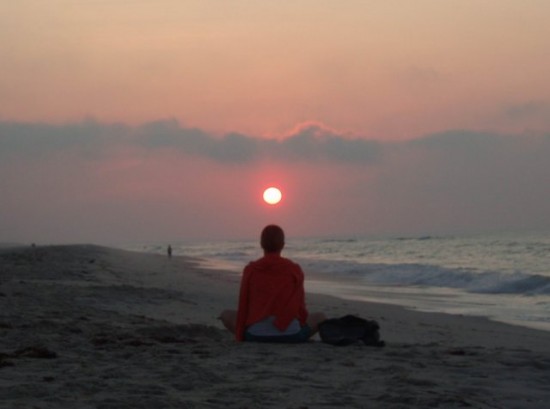Oceans
Every September churches around the world pray for creation in what is now known as the Season of Creation. The Season of Creation is urgent in ways that it has never been before. The UN Climate Chief has warned that we have 12 years left to avoid catastrophic climate damage that will impossible or extremely difficult to reverse. The focus in the first week of the season of creation is the ocean with a focus on the damage that we do:
We celebrate and love the ocean, so why is the ocean a victim of our pollution and damage? What are the reasons for our disregard for the warnings about climate damage?
I suggest that the problem is a spiritual one. Humankind places itself at the centre of creation, separate from it. In truth we are part of creation, one link joined with aspects of creation in a circle of unity. The conversation that is required is a reframing of identity, the idea that we are at the centre must die. Instead we identify ourselves as a part of creation.
An image that may illustrate the point being made is the song-game nursery school children sing and play: here we go around the mulberry bush. The simple game involves holding hands with other children and moving in a circle around a (pretend) mulberry bush. For too long humans have considered that they are the mulberry bush that creation is to go around. We must awaken to the fact that we are to join hands with other dimensions of our cosmos, the fauna and flora, galaxies and microbes, and be a part of the circle.
In poetic language this is the point being made in Ephesians 1v10: “as a plan for the fullness of time, to gather up all things in him, things in heaven and things on earth.”
God’s plan is to unite all things in heaven and on earth into Christ our head (Ephesians 1:10). Christ is all, in all, uniting all. God with us, God in us, God for us, uniting us to each other, uniting us to the earth and uniting us to God. What this means is that absolutely everything finds itself in God. God is all, in all, uniting all. Nothing is excluded. Everything belongs. It is the undoing of separation. Nothing is alienated. That is God’s plan for salvation. The verse is a celebration, a song of unity, every part of creation participates in the love life of God, and it is a cosmic fellowship. In sum: God’s plan is this: salvation means this: everything belongs. The presence of God is in all things uniting all things together.
Here are two stories that deeply evoke our unity with the ocean.
A salt doll journeyed for thousand of miles and stopped at the edge of the sea. It was fascinated by this moving liquid mass, so unlike anything it had seen before. "What are you" asked the salt doll. "Come in and see" replied the sea with a smile. So the salt doll waded in. The further it went, the more it dissolved till there was only a pinch of it left. Before the last bit dissolved the doll exclaimed in wonder, "Now I know what I am ". [1]
A man was walking on the beach one day, carrying his shoes in his hand. He sat down beside a tidal pool and looked at the shells and seaweed left in it. Then he noticed, just above the water line, what looked like a pile of salt. But the salt seemed to have the form of a woman. Then she opened her eyes, smiled, and sat up.
"Are you our salt doll who disappeared into the ocean?" he asked. "But she dissolved in the sea. Are you really the ocean itself?"
"I am both," said the salt doll. "I always was."
"How could you have come back from the sea?" the man asked.
"My purpose brought me back," she said. "I came back to tell you about the ocean. And to tell all you people something you don't seem to know about yourselves. I am no different from you. You are all salt dolls."
The man looked down at his bare foot, and for a moment it looked like it was made of salt.
[1] From Anthony de Mello (1985:98) in The Song of the Bird (Doubleday Image)

